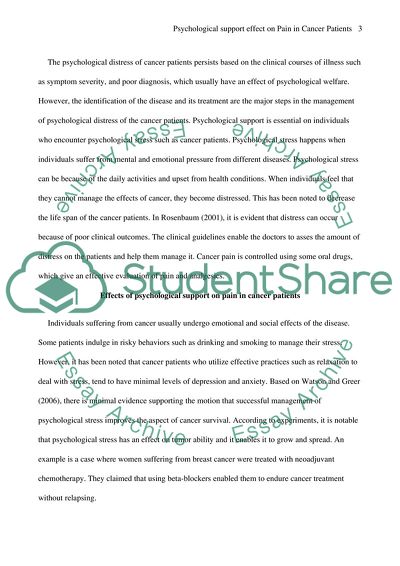Cite this document
(“Did the psychological support affect the pain of cancer patient and Essay - 1”, n.d.)
Did the psychological support affect the pain of cancer patient and Essay - 1. Retrieved from https://studentshare.org/nursing/1633961-did-the-psychological-support-affect-the-pain-of-cancer-patient-and-cure
Did the psychological support affect the pain of cancer patient and Essay - 1. Retrieved from https://studentshare.org/nursing/1633961-did-the-psychological-support-affect-the-pain-of-cancer-patient-and-cure
(Did the Psychological Support Affect the Pain of Cancer Patient and Essay - 1)
Did the Psychological Support Affect the Pain of Cancer Patient and Essay - 1. https://studentshare.org/nursing/1633961-did-the-psychological-support-affect-the-pain-of-cancer-patient-and-cure.
Did the Psychological Support Affect the Pain of Cancer Patient and Essay - 1. https://studentshare.org/nursing/1633961-did-the-psychological-support-affect-the-pain-of-cancer-patient-and-cure.
“Did the Psychological Support Affect the Pain of Cancer Patient and Essay - 1”, n.d. https://studentshare.org/nursing/1633961-did-the-psychological-support-affect-the-pain-of-cancer-patient-and-cure.


